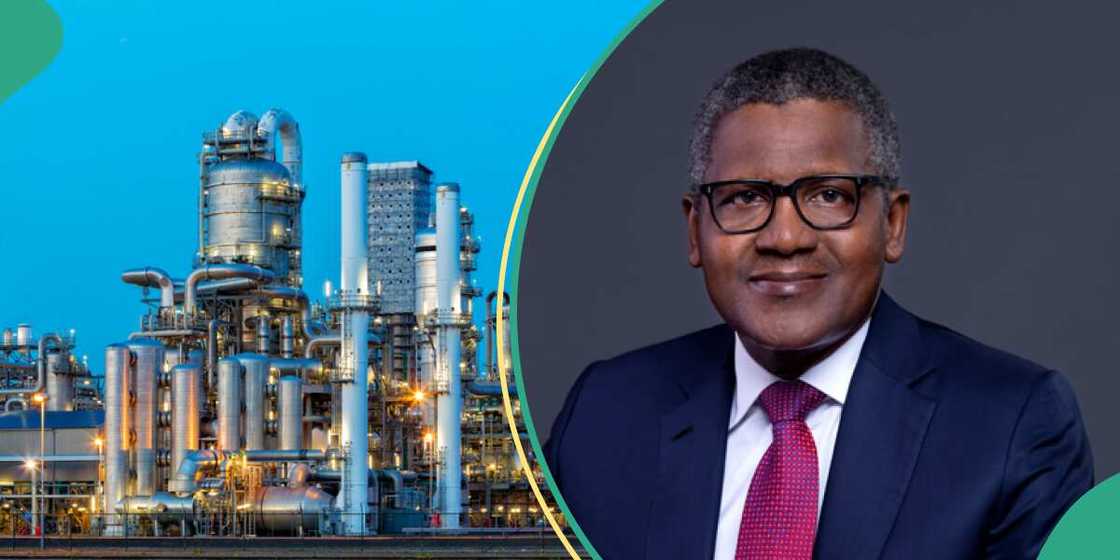In a significant move aimed at securing energy stability and reducing costs, Ghana is preparing to source petroleum products from Nigeria’s Dangote Oil Refinery. Expected to commence full operations by early 2025, this $19 billion refinery located in Lagos can produce up to 650,000 barrels per day, positioning it as one of the largest single-train refineries in the world.
This partnership, facilitated by Ghana’s National Petroleum Authority (NPA), seeks to reduce Ghana’s reliance on European fuel imports, which currently cost the nation an estimated $400 million monthly.
Reducing Dependence on European Imports
Currently, Ghana’s fuel import strategy is heavily reliant on imports from Europe. This approach, while functional, exposes the country to price volatility in global markets, contributing to fluctuating fuel costs and, ultimately, higher expenses for Ghanaian consumers. By partnering with the Dangote Refinery, Ghana aims to establish a more predictable and potentially cost-effective fuel supply chain, which could lead to stabilized fuel prices and a decrease in operational expenses for local businesses that rely on transportation and logistics.
Mustapha Abdul-Hamid, CEO of the NPA, emphasized that sourcing fuel from Nigeria offers a promising solution to the high costs associated with European imports. Not only does this move make economic sense, but it also strengthens intra-regional cooperation in West Africa, which is a strategic priority for both countries. This partnership signals a shift towards regional self-sufficiency, reducing dependency on distant markets and aligning with Ghana’s vision for sustainable economic growth.
Strengthening Regional Ties and Economic Collaboration
This partnership represents more than a commercial transaction; it is a step towards stronger regional collaboration. By sourcing fuel from a neighbouring African nation, Ghana is investing in the region’s economic stability, fostering interdependence, and paving the way for future partnerships in other industries. The Dangote Refinery, which is expected to meet Nigeria’s domestic needs and create a surplus for export, offers Ghana a reliable alternative that reduces both transportation costs and environmental impact compared to European imports.

Positive Impact on Ghana’s Economy and Consumer Welfare
For consumers, a more stable and predictable fuel supply could help mitigate the price fluctuations currently impacting household expenses and business operations. Stable fuel costs also benefit sectors such as agriculture, transportation, and manufacturing, which are crucial to Ghana’s economy. A reduction in fuel import expenses could free up resources for other developmental priorities, improving the overall fiscal health of the nation.
Additionally, reduced dependency on European imports could shield Ghana from external economic shocks, such as currency fluctuations and supply chain disruptions, that typically affect fuel prices. In a broader context, this strategic pivot aligns with the African Union’s Agenda 2063, which envisions a self-sustained Africa through intra-regional trade and collaboration.
Environmental Considerations and Sustainable Development
The proximity of the Dangote Refinery could also support Ghana’s environmental goals by reducing the carbon footprint associated with long-distance fuel transportation. By sourcing fuel from Nigeria, Ghana can reduce its reliance on lengthy maritime shipping routes, thus lowering emissions and supporting the global push towards greener supply chains.
In embracing this partnership with Nigeria’s Dangote Refinery, Ghana sets a precedent for sustainable, regionally-focused strategies that align with the global shift towards energy independence and environmental stewardship. This initiative represents a forward-thinking approach to fuel management, one that could serve as a model for other African nations seeking to balance economic and environmental priorities.
Through strategic alliances like these, Ghana continues to demonstrate its commitment to energy security, economic resilience, and regional unity. This partnership with the Dangote Refinery has the potential to reshape Ghana’s energy landscape, bringing about long-term benefits that extend well beyond fuel cost savings, reinforcing Ghana’s position as a proactive leader in West Africa’s economic development.

